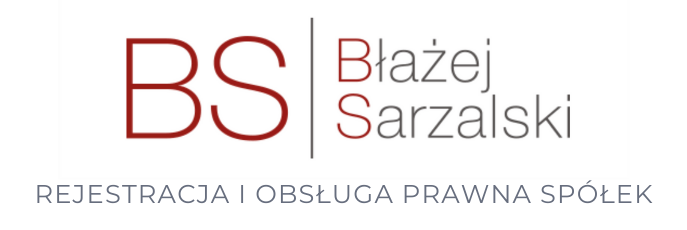In today’s post, I will talk about what share capital is and how to differentiate a company’s assets from its share capital in Polish limited liability company. These seemingly minor differences often affect how clients and contractors view a limited liability company – so it’s worth clarifying.
Share Capital – Definition
You surely know that specifying the share capital is a necessary element for creating a limited liability company. The minimum share capital is 5,000 PLN. You probably also know that covering this capital with real assets, i.e., the contributions of the partners, is a necessity. At the beginning of the activity, you contribute to cover this capital. But do you really understand what a limited liability company and its share capital are? This is often the moment in a conversation with a client when I step in and explain this issue. Many myths and misunderstandings have grown around the concept of share capital, which I often discover while talking to people interested in a limited liability company.
What is share capital? It is a certain magnitude or a formal category that should be reflected in the contributions made by partners when creating a company. As Professor Kidyba aptly describes in his commentary:
It (share capital – author’s note) is strictly treated as a formal magnitude constituting the sum of shares in the share capital. As an accounting entry on the liabilities side of the balance sheet, it corresponds on the assets side to the sum of asset components that have been acquired as capital contributions from partners.
As a consequence, this property, whether in cash or in-kind contributions, can be changed into other asset values (this is called the surrogation of share capital).
How high should the share capital of a limited liability company be?
If you are at this point, you might be wondering what amount of share capital to choose for your limited liability company? In my personal opinion, several factors related to your activity decide how high the share capital of the company should be. These are not necessarily the factors you are thinking about. In practice, I notice that among people asking me about the optimal amount of share capital for a company, two main types of reasoning emerge.
Share Capital and Company Assets
The first type identifies capital with the company’s assets. For this type of client, the basic question is:
will this amount of share capital look good?
This type of client thinks about how potential contractors will perceive the company, thinking that the amount of capital has something to do with the company’s reliability. Intuitively, it seems like it does. However, practice can be completely different. Personally, I believe that the amount of share capital does not translate into the reliability of the company as a contractor. This is because share capital is only an accounting entry, which, true, should be covered at the beginning of the company’s operation in real assets, but this is not always the case.
First, the actual amount of the share capital of a limited liability company is never verified in the registration procedure. The court is satisfied with receiving a declaration from the board members that the partners have fully paid in their contributions to the share capital. This tempts some to fudge the truth… you know, since nobody checks, let it be 100,000 PLN of capital, why not!
Second, the share capital can be covered by a non-monetary contribution. Such a contribution can be undervalued in the company’s agreement or overestimated since the actual value of this contribution is not examined in the registration procedure, relying on the partners’ declarations.
Third, the extent to which the capital is covered changes as the company generates profits or losses. In the National Court Register (KRS), you will find thousands of worthless companies with share capitals of fifty thousand or more. The catch is that their assets equal zero. Misunderstanding the concept of share capital leads to many people incorrectly understanding the concept of loss or profit. Share capital is often identified with the real assets of the company. However, this is not the case. Since share capital is a formal value, which is constant (results from the company’s agreement), it is only a point of reference for the company’s loss and profit. Loss or profit do not change the amount of share capital. They do not decrease or increase the capital but change the extent to which this capital is covered by the real assets of the company. Therefore, the company’s assets change. Of course, in the event of loss or profit, there may be a formal reduction or increase in share capital. However, the loss or profit itself does not cause its change.
From my perspective, I would prefer to do business with a company with a share capital of 5,000 PLN, which managed to generate many times higher revenues than its capital, than with a company with a capital of 100,000 PLN, which has been generating losses since the beginning of its operation.
Does share capital limit liability for the company’s obligations?
The second type of thinking about the appropriate amount of capital is where someone mistakenly assumes that share capital limits the company’s liability. That is, if we give 5,000 PLN, that’s all a potential creditor can get. Well… admirably optimistic.
The company always responds to obligations with all its assets, and as you know, it can be much higher or much lower than the officially declared share capital.
However, share capital does play a certain role when it comes to limiting liability. Up to the amount of this capital, the partners’ liability is limited – they contributed, they cannot distribute assets necessary to cover the capital for themselves. This money/item/right is to stay in the company and that’s it, but also only that much the partner can lose. Unless it is a partner who is also a member of the management board. Then it’s not so simple.
What should guide you in choosing the amount of share capital?
Rational factors. The real needs of the company, business plan, convenience, whether we have alternative and certain sources of financing the activity. Whether we can count on later loans or contributions from partners. Also, the amount of notarial fees or the expected amount of taxes related to its contribution (e.g., tax on in-kind contributions).
If you don’t know how to determine the share capital in your limited liability company, you can always ask a lawyer.
Source:
- https://rejestracjaspolkizoo.pl/2024/03/13/czym-jest-kapital-zakladowy/

